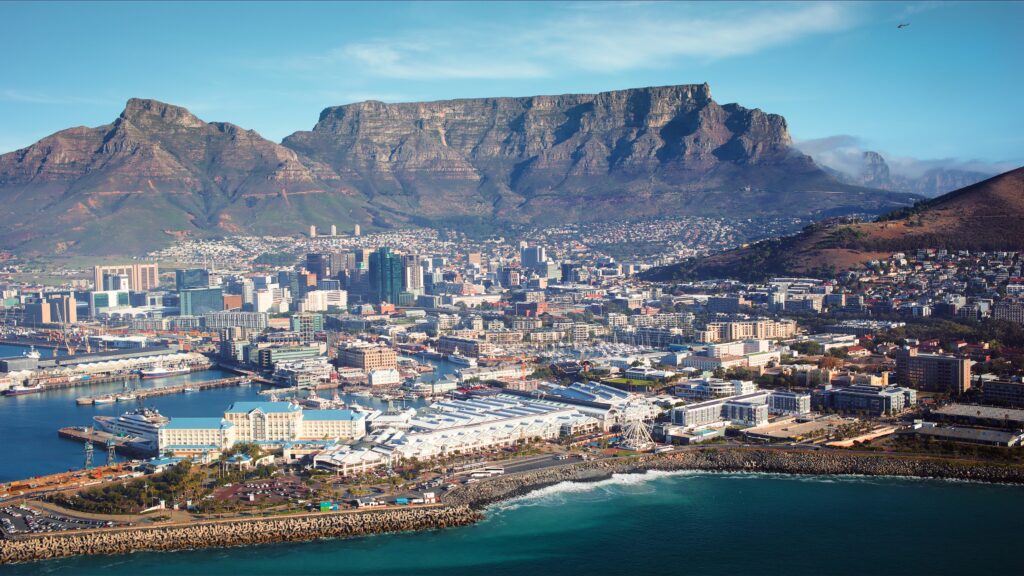South Africa’s key export industries are becoming increasingly vulnerable as climate policies like cross-border carbon taxes take hold, according to a study by Net Zero Tracker.
About 422 000 South African jobs are supported by exports to countries with active or incoming carbon border adjustment mechanisms, Net Zero Tracker’s researchers wrote in the report, released Monday CET.
ADVERTISEMENT
CONTINUE READING BELOW
Read: SA’s shrinking mining sector and the policies that brought us here
The taxes have “implications for jobs, inequality and tackling poverty in one of the world’s most unequal societies,” they added, while urging wealthier countries to support South Africa’s path to decarbonisation.
Carbon border adjustment mechanisms, or CBAMs, are designed to reduce emissions by ensuring imports are subject to the same surcharges as domestically produced goods that use carbon-intensive methods. The European Union, South Africa’s second-biggest trade partner after China, will start levying charges through its CBAM next year. The UK plans to follow suit and countries including Australia and Japan are also considering introducing measures.
“It’s bad for South Africa,” said John Lang, the project’s lead at Net Zero Tracker, which is run by four organisations including the UK’s Energy and Climate Intelligence Unit. “The rubber is going to hit the road next year.”
South Africa has joined India and Brazil in protesting against CBAMs, which they see as a form of protectionism. It has threatened to raise a complaint with the World Trade Organisation.
South Africa relies on coal for about four-fifths of its electricity generation and thus has the most carbon-intensive economy among the Group of 20 major economies.
The country’s basic metals sector, which accounted for almost a third of its exports in 2023, “has nearly twice the embodied carbon dioxide emissions of its next most carbon-intensive peer country,” Net Zero Tracker said. If CBAMs expand beyond raw materials, as the researchers expect, other South African industries will be at risk. Its automotive sector has the second-highest emissions in the world and its agricultural producers create three times the emissions of some peer countries, the researchers found.
In total, 78% of South Africa’s exports go to countries that have net zero targets, according to the study. Those exports support 1.2 million jobs in total.
Read: GDP grows a dismal 0.1% in the first quarter
ADVERTISEMENT:
CONTINUE READING BELOW
“For South Africa, this is both a warning and an opportunity,” the researchers wrote. “Decarbonising production is not just a climate imperative — it’s a strategic necessity for maintaining global competitiveness.”
While the cross-border carbon taxes create immediate risks, South Africa also has economic advantages including renewable energy resources, critical minerals and access to major trade and diplomatic frameworks, they added.
With the world’s largest reserves of manganese and chromium, used to make fuel cells, South Africa has an opportunity to develop as a strategic supplier for the global energy transition, the researchers wrote. Collaboration across the main Brics economies — Brazil, Russia, India, China and South Africa — could help establish new supply chains, they added.
Read: Sasol’s plans to boost fuel production and expand renewables
International investment will also be critical to the economy’s decarbonisation, they added. Net Zero Tracker urged South Africa to take advantage of its $8.3 billion climate finance pact with some of the world’s richest nations. The Just Energy Transition Partnership, signed in 2021 between South Africa and countries including France and Germany, is designed to provide concessional funding to reduce South Africa’s reliance on coal.
However, in October the country’s presidency said there was a shortage of investable projects.
In addition to the ECIU, Net Zero Tracker is run by Oxford Net Zero, the Data-Driven EnviroLab and the NewClimate Institute.
© 2025 Bloomberg
Follow Moneyweb’s in-depth finance and business news on WhatsApp here.

 5 hours ago
1
5 hours ago
1























 English (US) ·
English (US) ·